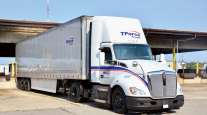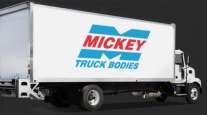Staff Reporter
TFI International Acquires Schilli, Toronto Tank Lines

TFI International Inc., one of the largest trucking and logistics companies in the United States and Canada, is making moves in the tanker business, snapping up two trucking companies in February.
It purchased Schilli Corp. and Toronto Tank Lines. Terms were not disclosed.

The moves follow what CEO Alain Bedard said was a spectacular January for the company and follow the records for revenue and operating results set in the 2018 fourth quarter and year.
The Montreal-based conglomerate provides parcel delivery, truckload and less-than-truckload freight hauling, warehousing and transportation management services logistics throughout North America. The company already has specialized truckload market positions in Canada, but its February purchases indicate a desire to expand the business further in North America.

Bedard
St. Louis-based Schilli is a dry and liquid bulk carrier active in the Midwest, Southeast and Gulf Coast regions. Schilli has 400 employees, 22 facilities, 340 tractors and 500 trailers. It specializes in hauling cement, lime, limestone, sand, roofing granules, starch and lubricants.
TFI also purchased Toronto Tank Lines, which focuses on liquid freight, with some biodiesel hauling. Founded in 1993 in Hamilton, Ontario, Toronto Tank Lines specializes in the transportation and storage of food grade liquids, industrial chemicals, specialty oils and waxes throughout Canada, the United States and Mexico. Toronto Tank Lines operates storage facilities and has a fleet of 75 tank trailers.
“We see there is an opportunity in tank (business), both in the United States and Canada,” said Steven Brookshaw, TFI executive vice president of specialty trucking, in an interview with Transport Topics.
But Brookshaw said the binational opportunities are of different types.
Toronto Tank Lines does extensive business with railways, he said. Its tank storage operations include 15 insulated and heated tanks, each with a capacity of 1 million liters and each capable of receiving or delivering cargo from or to marine vessels, railcars and tank trucks.
That aspect will allow TFI to do more transloading, which is a trend Brookshaw believes will grow as there are fewer and fewer longhaul truck drivers.

“As the world changes, and as there are less longhaul drivers, transload becomes more important,” Brookshaw said. “It’s a way to take the longhaul portion out.”
In Missouri, the purchase of Schilli gives TFI a new and central foothold in the United States, Brookshaw said. Additional growth in the United States could be built around Schilli’s infrastructure, but TFI officials said Bedard told investors that 2019 would be a year of modest acquisitions.
TFI spent about C$150 million on acquisitions in 2018, and that could go as high as $200 million in 2019, Bedard told investors.
In filings for the fourth quarter, TFI reported that adjusted net income was $86.3 million, up from $53.9 million in the fourth quarter the year before. The company reported total revenue reached $5.12 billion, up from $4.84 billion in 2017.
TFI International ranks No. 9 on the Transport Topics Top 100 list of the largest for-hire carriers in North America.




